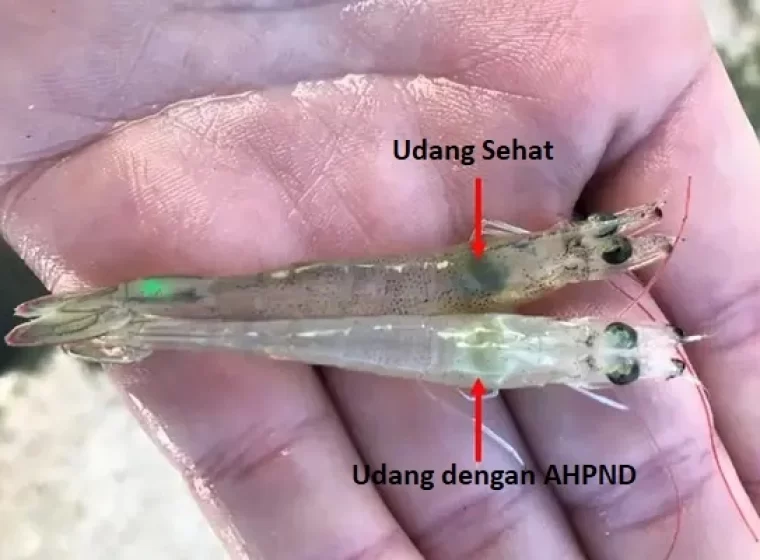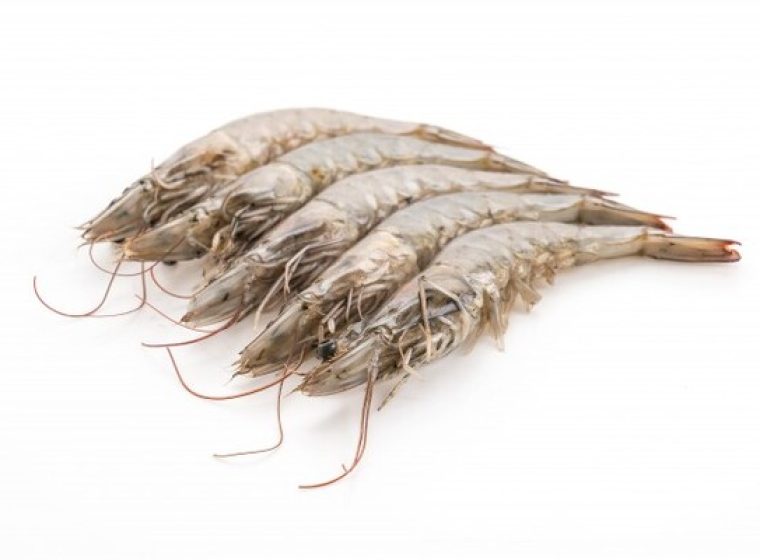IHHNV, or Infectious Hypodermal and Hematopoietic Necrosis Virus, is a disease caused by a viral infection that attacks vannamei shrimp. This disease can cause shrimp to become stunted and deformed in some body parts.
IHHNV disease can attack all stages of shrimp life, from eggs, larvae, postlarvae, and juveniles to adult shrimp. Therefore, you must be careful and mitigate if you encounter shrimp with IHHNV symptoms.
However, you don’t need to worry; read more about the symptoms and how to prevent IHHNV in this article!
Also Read: Get to Know Myo IMNV Disease in Vannamei Shrimp and Its Characteristics
Symptoms of IHHNV Disease in Vannamei Shrimp:
IHHNV disease infects the hypodermal and hematopoietic tissues of vannamei shrimp, such as gills, cuticle epithelium, connective tissue, lymphoid organs, and others. Symptoms can vary depending on the severity of the infection. Some of the common symptoms of IHHNV in vannamei shrimp include:
1. Decreased Appetite
Vannamei shrimp infected with IHHNV showed a decrease in appetite. This can lead to slower growth rates and poor shrimp survival rates.
2. Discoloration and Deformity of the Body
Shrimp infected with IHHNV can show discoloration and deformities, namely stunting in some parts of the body and deformity of the rostrum. In acute conditions, the shrimp skin will appear pale white, the body’s surface will be overgrown with bacteria or fungi, and necrosis is seen in the cuticles, nerves, and antennae.
Also Read: The Importance of Alkalinity in Shrimp Ponds, Check Your Alkalinity Now!
How to Prevent IHHNV in Vannamei Shrimp
There are several mitigation strategies that you can use to reduce the impact of IHHNV on the vannamei shrimp population in your pond, namely:
1. Implementation of Strict Biosecurity
Implementing strict biosecurity such as disinfecting ponds, water, and equipment, limiting interactions between people from outside the pond and the pond, and using disease-free broodstock and juveniles.
2. Do Early Detection and Treatment
Monitoring the condition of shrimp every day regularly can help you detect symptoms of IHHNV disease so that mitigation and treatment can be carried out immediately to reduce losses. Molecular disease checks using polymerase chain reaction (PCR), carried out regularly before stocking or during the cultivation process, are also very helpful in the early detection of IHHNV disease.
3. Implement Good Water Quality Management
Maintaining optimal water quality parameters with good management can also help you reduce stress on vannamei shrimp so that the shrimp are not susceptible to disease.
4. Select Disease Resistant Parent
Choosing parents who are genetically resistant to disease can help reduce the risk of infection in their offspring, including infection with IHHNV. The reason is that, in some cases, broodstock shrimp can reduce the disease in the fry produced.
5. Practice Good Feed Management
Good feed management will significantly help shrimp to meet their energy needs. Shrimp whose energy needs are met adequately will be more resistant to environmental stress and disease infection and grow faster.
6. Administer Immunostimulants and Feed Additives
Immunostimulants and feed additives, such as β-glucans, probiotics, vitamins, and others, can also improve the shrimp’s immune system to resist environmental stress and viral infections.
Also Read: Recognize 7 Characteristics of AHPND Disease in Vannamei Shrimp Before It’s Too Late
Find Out About IHHNV Disease and How to Treat It with DELOS!
IHHNV disease is one of the most dangerous diseases in shrimp because it can attack various life stages, from eggs to adult shrimp. Therefore, constantly monitor the health of your shrimp to prevent further spread of disease.
When symptoms appear that shrimp are infected with IHHNV, you should immediately consult with people who are experts in handling this disease. DELOS is one of them!
DELOS is an aquatech startup ready to help you deal with it. With a reliable and highly dedicated Science Team, we are ready to assist you in mitigating and preventing disease from occurring in your shrimp ponds.
Not only IHHNV disease, but the DELOS Science Team is also experienced in treating various other diseases. Such as white feces and Myo disease. So, no need to hesitate and immediately contact DELOS via contact@delosaqua.com or via the contact column and WhatsApp on our website, www.delosaqua.com, to get a solution to your shrimp disease problem!




